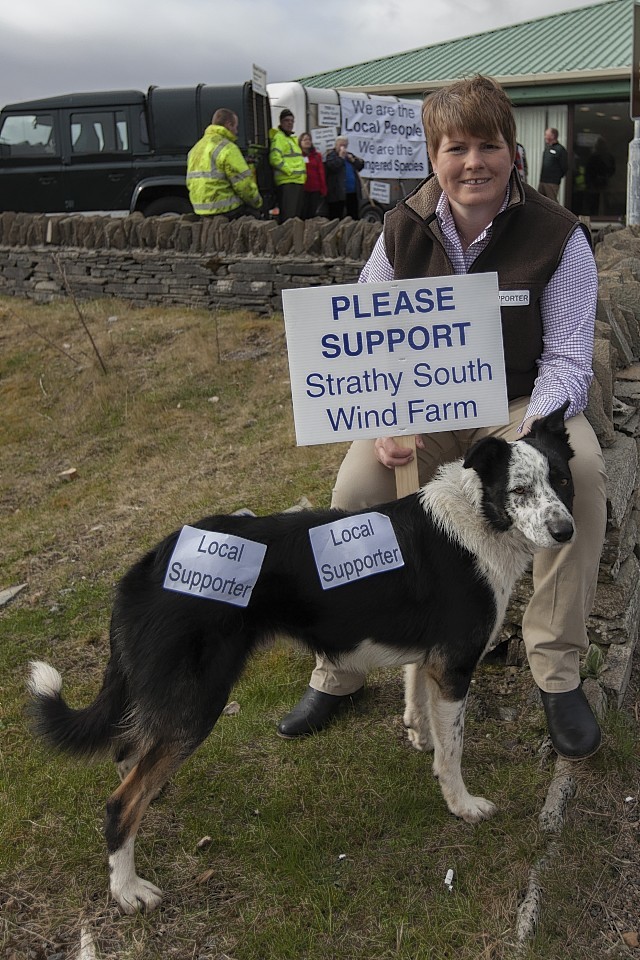The focus of a public inquiry into a windfarm in the far north switched yesterday to the forestry created as the result of a highly controversial 1980s government policy of offering tax breaks for tree planting.
An inquiry that began in April resumed in the Sutherland village of Strathy in the heart of the fragile Flow Country, where power giant Scottish and Southern Energy (SSE) wants to build 39 turbines close to 33 it is already building.
The Strathy South scheme has become a battle of wills between SSE and environmental organisations including the bird charity RSPB Scotland.
Their respective legal teams yesterday thrashed out some of the arguments, but the signs were there was a lot of ground still to cover over the next two days before planning conditions could be outlined on Friday.
Shortly before proceedings resumed at Strathy village hall, a group of locals reaffirmed their support for SSE plans which promise substantial community benefits if the project is approved by the Scottish Government.
The day’s evidence featured further complex debate about peat before moving on to vegetation, habitat management and restoration of the landscape.
Aedan Smith of RSPB Scotland felt uncertainty remained about the potential impact on a range of important bird species and on the Flow Country peatland itself, although he said his organisation was in no doubt that the turbine proposal posed “some fairly major risks.”
There was unanimous agreement, however, that the promised removal of a significant swathe of forest would benefit the area.
Much of the forest planted in the 1980s proved an economic disaster in that it was not commercially productive.
“Thirty years on, some of it is commercially viable for extraction, but much of it isn’t,” Mr Smith said.
“It just wasn’t the right place to be planting trees really. The ploughing – for drainage – damaged the surface of the peatlands and the trees themselves add to the drying out effect of peatland that are fundamentally wet places.
“Nobody would have done it had it not been for the tax breaks.”
There was agreement on both sides that naturally stored CO2 is at risk of being released into the atmosphere because of the damage the trees have done.
An extensive restoration programme has been pledged if the turbines are approved.
Scottish Natural Heritage, which objects to the wind development, will outline its case today. (WED)
Ends.
